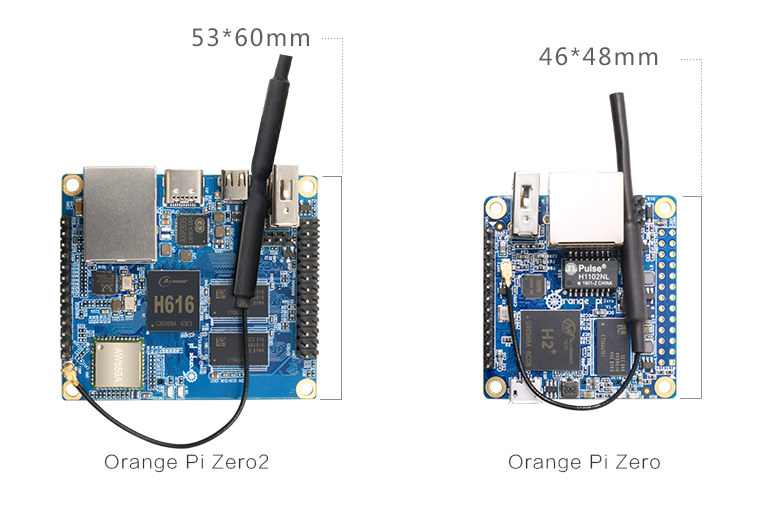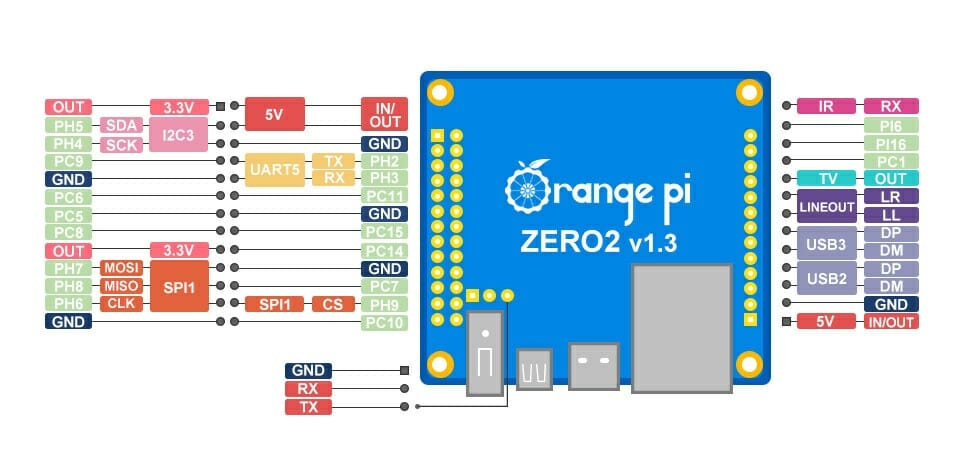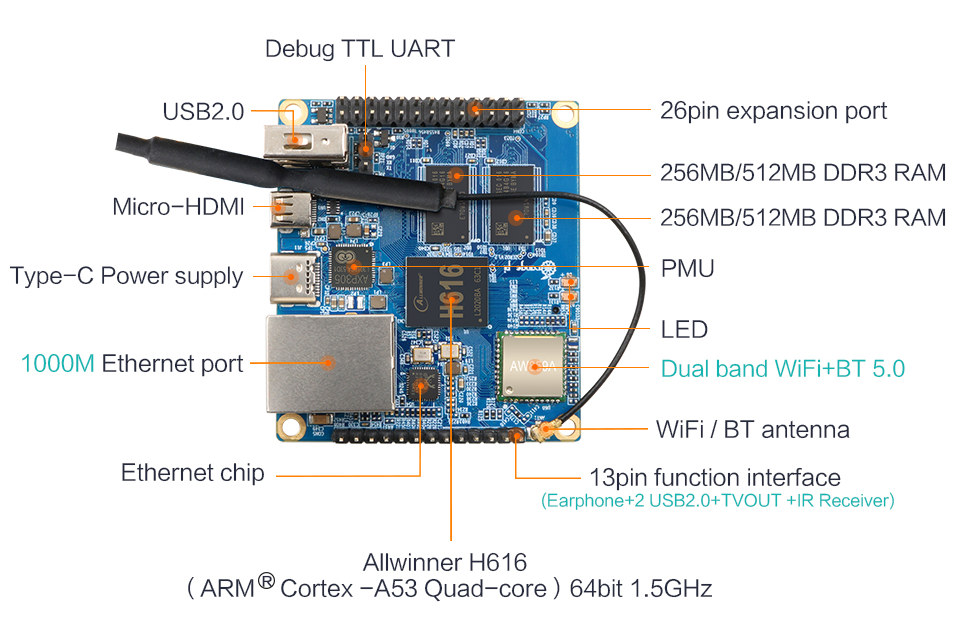Last year, Shenzhen Xunlong Software unveiled Orange Pi Zero2 SBC as an update to the popular Orange Pi Zero board with a faster Allwinner H6 processor, HDMI 2.0 video output, USB 3.0 port, Gigabit Ethernet, and WiFi.
Just one little problem: AFAIK they never sold it. But Orange Pi Zero2 board is now back with another design features instead equipped with a newer Allwinner H616 processor supporting Android 10, and various Linux distributions such as Ubuntu and Debian.
Orange Pi Zero2 (2020) specifications:
- SoC – Allwinner H616 quad-core Arm Cortex-A53 processor @ up to 1.5 GHz with Arm Mali G31 MP2 GPU with support for OpenGL ES 3.2 and OpenCL 2.0
- Memory – 512MB or 1GB DDR3
- Storage – 2MB SPI flash and MicroSD card slot
- Video Output
- Micro HDMI 2.0a port up to 4Kp60
- Video composite (CVBS) via 13-pin header (See Expansion section)
- Video
- Decoding
- 10-bit H265/HEVC up tp 4Kp60 or 6Kp30
- VP9 up to 4Kp60
- H264/AVC up to 4Kp30
- AVS2 up to 4Kp60
- Encoding
- H.264 up to 4Kp25 or 1080p60
- JPEG up to 1080p60
- Decoding
- Audio – Analog stereo audio via 13-pin header, and digital audio via micro HDMI port
- Network Connectivity
- Gigabit Ethernet
- Dual-band 802.11 b/g/n/ac WiFi 5 + Bluetooth 5.0 via AW859A module
- USB – 1x USB 2.0 host port, 2x USB 2.0 interfaces via 13-pin header
- Expansion
- 13-pin header with 2x USB, analog stereo audio output, CVBS video output, IR input, 3x GPIOs
- 26-pin IO header with I2C, SPI, UART, multiple GPIOs
- Debugging – 3-pin UART header for serial console
- Misc – Power & status LEDs, power key
- Power Supply – 5V via USB Type-C port
- Dimensions – 60 x 53 mm
- Weight – 26 grams

There were lots of complaints about Allwinner XR819 WiFi module when Orange Pi Zero first launched, but hopefully, the new Allwinner AW859A wireless module will perform better. Thanks to a micro HDMI interface, Orange Pi Zero2 is not only reserved for headless applications.


Jean-Luc started CNX Software in 2010 as a part-time endeavor, before quitting his job as a software engineering manager, and starting to write daily news, and reviews full time later in 2011.
Support CNX Software! Donate via cryptocurrencies, become a Patron on Patreon, or purchase goods on Amazon or Aliexpress





